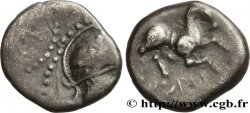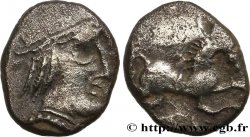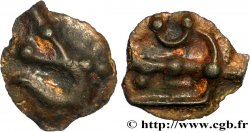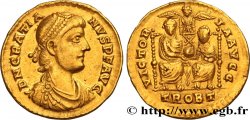Live auction - bga_753263 - EDUENS, ÆDUI (BIBRACTE, Area of the Mont-Beuvray) Statère du type du quart de Beaune
You must signin and be an approved bidder to bid, LOGIN TO BID. Accounts are subject to approval and the approval process takes place within 48 hours. Do not wait until the day a sale closes to register. Clicking on "BID" constitutes acceptance of the terms of use of cgb.fr private live auctions.
Bids must be placed in whole Euro amounts only. The sale will start closing at the time stated on the item description; any bids received at the site after the closing time will not be executed. Transmission times may vary and bids could be rejected if you wait until the last second. For further information check the Live auction FAQ
All winning bids are subject to a 18% buyer’s fee.
All winning bids are subject to a 18% buyer’s fee.
| Estimate : | 2 500 € |
| Price : | no bid |
| Maximum bid : | no bid |
| End of the sale : | 06 September 2022 15:47:53 |
Type : Statère du type du quart de Beaune
Date: Ier siècle avant J.-C.
Mint name / Town : Autun (71)
Metal : gold
Diameter : 20 mm
Orientation dies : 3 h.
Weight : 7,09 g.
Rarity : R2
Coments on the condition:
Usure importante mais beau droit. Revers décentré
Obverse
Obverse legend : ANÉPIGRAPHE.
Obverse description : Tête à droite ornée d'une couronne de lauriers partant du front et rejoignant la nuque.
Reverse
Reverse legend : ANÉPIGRAPHE.
Reverse description : Bige à droite conduit par un aurige stylisé en bord de flan, un triskèle sous les chevaux.
Commentary
Lors de la vente du n° 882 de MONNAIES 32 (pièce de couverture), ce très rare type de statère était sous-documenté, connu qu'à quelques unités. Cet exemplaire, bien que de frappe molle, est exceptionnellement complet.
La proximité du revers avec un type plus traditionnel est sans doute la raison pour laquelle il a été amalgamé à une série bien connue bien qu'il s'en distingue tant au droit qu'au revers ! Il s'agit du statère correspondant au quart connu sous l'appellation du type de Beaune attribué aux Éduens.
Le récent ouvrage “ Le trésor de Tayac” reprend cette variété particulière sous la série F6 des statères au triskèle. Cinq statères y sont représentés ; un qui pourrait provenir de Tayac, celui de la vente Mioche - coll. de Saulcy (BN. 3693), les deux de Zurich et celui de la collection Luneau dispersée en 1923 par Platt.
La proximité du revers avec un type plus traditionnel est sans doute la raison pour laquelle il a été amalgamé à une série bien connue bien qu'il s'en distingue tant au droit qu'au revers ! Il s'agit du statère correspondant au quart connu sous l'appellation du type de Beaune attribué aux Éduens.
Le récent ouvrage “ Le trésor de Tayac” reprend cette variété particulière sous la série F6 des statères au triskèle. Cinq statères y sont représentés ; un qui pourrait provenir de Tayac, celui de la vente Mioche - coll. de Saulcy (BN. 3693), les deux de Zurich et celui de la collection Luneau dispersée en 1923 par Platt.







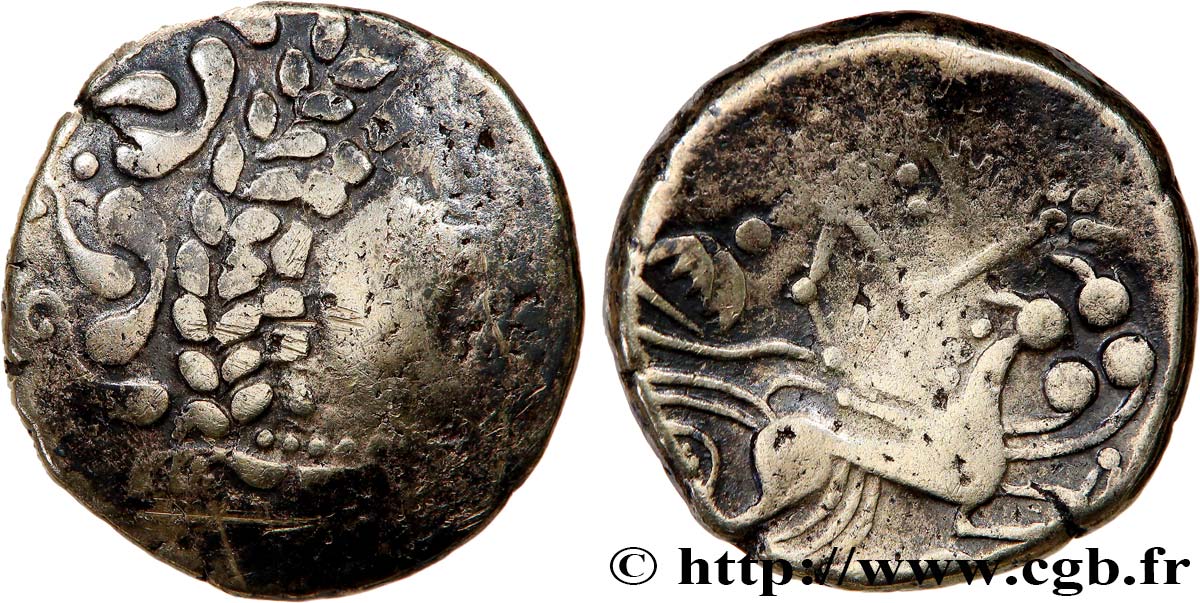
 Report a mistake
Report a mistake Print the page
Print the page Share my selection
Share my selection Ask a question
Ask a question Consign / sell
Consign / sell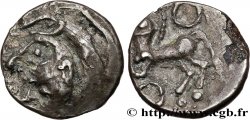
 Full data
Full data

